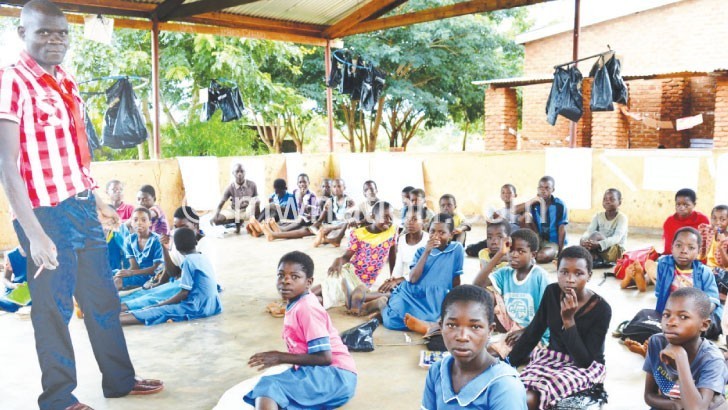Not just 18 desks
A slice is better than none and that is how Hajira and her Standard Eight classmates at Nansato Primary School in Mangochi feel.
The 15-year-old, one of 513 girls at the remote school in Mangochi, had never sat on a desk since she enrolled in Standard One.
“The school has had no desks from the onset. Sitting on the floor in a class dominated by boys was always tough for us, especially when standing up to answer questions,” says Hajira, who is preparing to sit Primary School Leaving Certificate of Education (PLSCE) examinations next month.
Not any longer.

In 2018, her school got 18 desks worth K434 000.
For the first time in 27 years, Standards Seven and Eight learners can learn in comfort.
The excitement among adolescent girls is evident.
“The desks have made learning easier,” says Hajira. “The interest to attend classes is higher than it were when we had to sit on the floor.”
Nansato is one of the eight schools in Chiponde Zone which are supported by Malawi Education Sector Improvement Project (Mesip). The four-year initiative, funded by the World Bank, provides incentives to reduce repetition and dropout rates in primary schools, especially in Standards One to Four.
The performance-based funding is helping retain girls in school, saving them from widespread child marriages and teen pregnancies.
“When we received the funding, the school management committee and other committees met to discuss what to do with the money. We resolved to buy desks for senior pupils and benches for junior learners,” says head teacher Redson Bwanali.
The school, with 1 026 learners, also received about K1. 3 million from Mesp for construction of a shelter which saved pupils from learning in the open due to shortage of classrooms.
“This has improved learning and teaching at our school. The class occupying the facility is chosen based on performance,” says Bwanali.
Last month, Standard Four learners were learning in the Mesip shelter after outshining all other classes.
Bwanali saluted their class teacher Mathews Scotch for helping the pupils achieve outstanding grades last academic year.
Mesip is also funding a component which aims at improving equitable access to education. This component focuses on improving retention of teenage girls, particularly in Standards Six to Eight, by constructing sanitation facilities often ignored when opening schools.
“We have provided school uniforms to 19 vulnerable learners and bought cloths for making sanitary pads for adolescent girls.
Currently, we are constructing a permanent changing room for the girls who often miss classes when menstruating,” Bwanali says.
Mesp component coordinator Evance Kazembe says the project has proved to be a game-changer due to increased participation of community members, teachers and learners.
Interestingly, parents in Nansato have started encouraging one another to send children to school instead of forcing them to marry early. Nowadays, mother groups go door-to-door to ensure that no girl child drops out of school in preference to marriage.
Also, on the rise is the cooperation between community members and teachers.
This, coupled with remedial classes and the establishment of reading centres, have improved the number of pupils selected to secondary school.
“For the first time, two pupils have been selected to Mangochi and Lisumbwi secondary schools,” says the head teacher.
Chiponde Zone primary education adviser Gloria Khauke congratulated Nansato Primary School for rising from its unenviable past.
“We have 16 schools in Chiponde, but Nansato is the focal point for all eight schools which are benefitting from Mesip in the zone. The school always shares information and success stories with other schools,” says Khauke.
Nansato is also doing well when it comes to environmental and waste management committees, which spearhead the planting of trees and keeping the school clean.
The school has special boxes in the head teacher’s office and every classroom where pupils, teachers and guardians drop complaints.
But the school is still grappling with shortage of classrooms and teachers’ houses.
The 27-year-old school has just two school blocks that only sit four classes out of 13 streams. Other streams learn in tree shades, a setback on the national policy to ensure every child has a safe and secure learning environment.
According to Minister of Education, Science and Technology Bright Msaka, government plans to provide 800 school blocks and buy 50 000 desks for primary schools nationwide.
But Hajira and the rest of the 25 learners in Standard Eight look forward to one thing: to be selected to national secondary schools at the beginning of the 2019/20 academic year.





